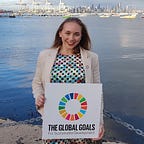What Were the Highlights from Davos 2019 and What Do They Mean for Corporate Sustainability?
Last week, the World Economic Forum held its annual meeting in Davos. Commissioning Editor on the Agenda of the WEF, Cari Parker, published eight highlights from the 2019 forum. In this article, we look at the eight highlights and what they mean for corporate sustainability.
1. ‘The Garden of Eden is no more’
Sir David Attenborough made an impassioned speech about the end of the Holocene and the beginning of the Anthropocene. This is a change in geological age from a period of climate stability to a period of climate instability which has been either brought about or sped up by human activity. This places climate change at the top of the agenda when it comes to a commitment to corporate sustainability to ensure we can minimise our environmental impact and slow or eventually stop the damage we are doing to the planet.
2. A new path for Venezuela?
Probably something which is less important for our Australian clients is the declaration by Mr Juan Guiado to place himself as Interim President of Venezuela. Of course, this is important for all businesses which export products to Venezuela as Mr Guiado offers promise for a renewed economy.
3. Trade tensions take a toll on the global economy
IMF Managing Director Christine Lagarde spoke about the need to fix the global trade system, to fight corruption and tax evasion and to address the threat of climate change (see above). Corruption and tax evasion both still occur in Australian businesses, and it is important that we are addressing both of these in order to ensure the global economy is not suffering. Within your organisation, you can look at ensuring all businesses in your supply chain have an anti-corruption policy and are tax paying members of the Australian economy.
4. New Zealand has a well-being budget
New Zealand Prime Minister Jacinda Ardern spoke of the need to put citizens at the forefront of the economic agenda in a move referred to as the well-being budget. This idea is looking to bring more economic growth to New Zealand by ensuring that people are physically and emotionally well and, therefore, able to contribute more to the economy. This same philosophy can be implemented by businesses around corporate well-being.
5. ‘Japan has defeated defeatism’
Over the past 7 years, Japan has brought 2 million women into the workforce, boosting the Japanese economy and actually saving them from economic disaster. Some countries could boost GDP by AU$8 trillion by empowering women through meaningful employment. Companies can also look at the benefits of a gender-diverse team and the value it can add to their business.
6. Africa’s digital vision
South African President Cyril Ramaphosa spoke on the need for countries around the African continent to embrace the technologies of what is known as the Fourth Industrial Revolution. “Africa now has this great opportunity, having lost out on the previous revolutions that we’ve had, to leapfrog,” the President explained. It provides a great opportunity for collaboration between Australian companies and not-for-profits and social enterprise start-ups across the African continent for Australian businesses to provide resources to these organisations in Africa to ensure the continent is not left behind in the achievement of the United Nations’ 17 Global Goals for Sustainable Development.
7. A plea for an end to refugee camps
A young Somalian refugee was one of six millennials to co-chair a panel at Davos 2019. Mohammed Hassan Mohamud’s speech was one of the most impressive we have seen at Davos. He called on people to show compassion to refugees across the world. His comparison between the ability to move millions of dollars in seconds in a financial trade but the fact that we are unable to move a person from a country where their life is at risk for a number of years really struck a chord about the state of the world. It is difficult to take action on refugees in SMEs; however, creating a policy to encourage the hiring of refugees where possible will assist in their economic settlement into Australia. Businesses can also be a beacon of knowledge for people and increase positive messaging around refugees to fight some of the stigma that unfortunately exists.
8. Three different visions for the future of Europe
Leaders from across Europe also spoke about their vision for a more economically sustainable EU. These included ideas around empowering the middle class, ensuring the economy puts people first and taking lessons from the incredible progress we have made in the last 50 years of development in lifting people out of poverty despite a growing global population.
If you would like further information about some of the learnings and ideas discussed during Davos 2019 and how your business can implement these, please contact us.
This article was originally published on the Strategic Sustainability Consultants website.
